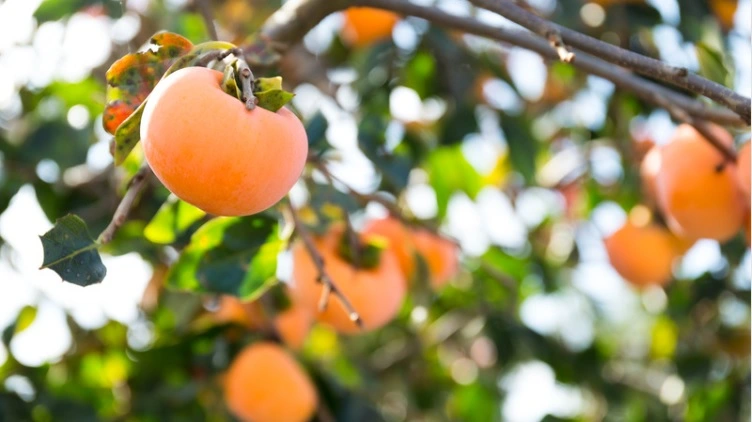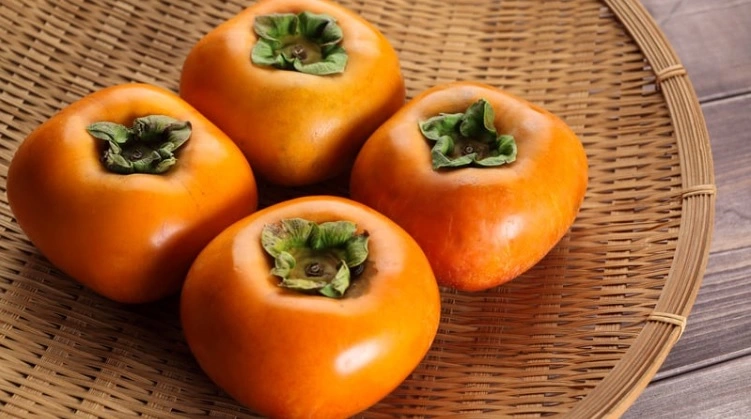Persimmons are not just delicious; they also pack a powerful punch when it comes to health benefits. Rich in vitamins A, C, and E, these fruits are potent antioxidants that can help boost your immune system and protect your cells from damage. Additionally, persimmons contain dietary fiber, which aids digestion and promotes gut health.
One standout benefit of eating persimmons is their potential to lower inflammation in the body due to their anti-inflammatory properties. This can be beneficial for conditions like arthritis and heart disease. Moreover, the high levels of potassium in persimmons support healthy blood pressure levels.
Not only do persimmons offer a sweet treat for your taste buds, but they also contribute to overall well-being by providing essential nutrients that support various bodily functions. So next time you’re looking for a tasty snack with added health perks, reach for a ripe persimmon!
Description of Persimmons
Persimmons are vibrant, sweet fruits that come in a variety of shapes and colors. They belong to the genus Diospyros and are native to China but can now be found growing in many regions around the world. The two most common types of this fruit are Fuyu and Hachiya.
Fuyu are squat and round, resembling tomatoes with a flat top. They can be eaten firm or soft, depending on personal preference. On the other hand, Hachiya are acorn-shaped and must be fully ripe before consuming due to their high tannin content.
The flesh of both varieties ranges from pale orange to dark red-orange when ripe, with a texture similar to apricots or mangoes. Persimmons have a slightly tangy-sweet flavor that becomes more pronounced as they ripen. These fruits are not only delicious but also packed with essential nutrients like vitamins A & C, fiber, potassium, and antioxidants – making them a healthy addition to any diet!
Nutritional Value of Persimmons
Persimmons are not only delicious but also packed with essential nutrients that can benefit your overall health. These vibrant fruits are a great source of vitamins A, C, and E, which play crucial roles in supporting immune function and promoting healthy skin.
Additionally, this fruit contains dietary fiber, which is important for digestive health and can help regulate blood sugar levels. They also provide minerals like potassium and manganese, which aid in maintaining proper muscle function and bone health.
Moreover, they are low in calories and fat while being high in antioxidants like beta-carotene and lutein. These antioxidants help protect cells from damage caused by free radicals and may reduce the risk of chronic diseases.
Incorporating this fruit into your diet can be a tasty way to boost your nutrient intake and support your well-being.
Health Benefits of Eating Persimmons Regularly
Persimmons are not only delicious but also packed with health benefits when consumed regularly. These vibrant fruits are rich in vitamins A, C, and E, which can help boost the immune system and promote healthy skin. Additionally, they contain fiber that aids digestion and helps maintain a healthy gut.
Moreover, they are a good source of antioxidants like beta-carotene and lutein, which can help protect cells from damage caused by free radicals. The high levels of potassium in this fruit make them beneficial for heart health by helping to regulate blood pressure.
Furthermore, consuming them regularly may contribute to weight management due to their low calorie content and ability to keep you feeling full longer. Including this fruit in your diet can also support bone health thanks to its calcium content.
Incorporating this vibrant fruit into your daily meals or snacks can be an easy way to improve your overall well-being!
Cultivation of Persimmons
Persimmons are fruit-bearing trees that thrive in temperate climates, with origins traced back to China and Japan. Cultivating this fruit requires well-drained soil and plenty of sunlight. These trees can tolerate various soil types but prefer slightly acidic conditions for optimal growth.
When planting its trees, ensure they have enough space to spread their roots as they can grow quite large over time. Regular watering is essential during the tree’s establishment phase, especially in dry periods. Pruning helps maintain the tree’s shape and promotes healthy fruit production.
It typically takes a few years for newly planted persimmon trees to bear fruit, but once established, they can provide a bountiful harvest season after season. Understanding the specific variety of this fruit being cultivated is crucial as different types may have varying growing requirements.
Cultivating this fruit can be a rewarding experience for gardeners looking to enjoy fresh and nutritious fruits straight from their backyard orchard.

Traditional and Modern Uses of Persimmons
Persimmons have been used for centuries in traditional medicine and cooking practices around the world. In traditional Chinese medicine, persimmons are believed to aid digestion and promote healthy lungs. They are also commonly used in Korean cuisine, both fresh and dried, adding a unique sweet flavor to dishes.
In modern times, persimmons have gained popularity for their versatility in recipes ranging from salads to desserts. Their high fiber content makes them a great addition to smoothies or oatmeal for a nutritious boost. Persimmon jam or chutney can add a delicious touch to cheese platters or roasted meats.
Moreover, persimmons are becoming popular ingredients in skincare products due to their antioxidant properties that help protect the skin from environmental damage. The extract of persimmon leaves is also being studied for potential anti-inflammatory benefits when applied topically.
Whether enjoyed as a snack on its own or incorporated into various dishes and beauty products, persimmons continue to demonstrate their worth beyond just being a tasty fruit.
Risks and Toxicity Concerns
When it comes to enjoying persimmons, there are a few risks and toxicity concerns to be aware of. One such concern is the presence of tannins in unripe persimmons, which can cause an astringent taste and potentially lead to stomach discomfort if consumed in large quantities.
Additionally, some individuals may have allergies to persimmons or experience digestive issues when consuming them. It’s always advisable to start with small amounts if you’re trying persimmons for the first time or if you have a sensitive stomach.
Furthermore, while rare, there have been reports of allergic reactions to persimmons resulting in symptoms like itching, swelling, or difficulty breathing. If you suspect an allergy after eating persimmons, seek medical attention immediately.
To mitigate any potential risks associated with persimmon consumption, ensure that you choose ripe fruits and moderate your intake. As with any food item, it’s best to enjoy them in moderation and listen to your body’s signals for any adverse reactions.
Conclusion
Persimmons are not only delicious but also incredibly nutritious fruits that offer a wide range of health benefits. From being rich in vitamins and minerals to aiding digestion and promoting heart health, incorporating persimmons into your diet can be a great way to boost your overall well-being. Whether eaten fresh, dried, or used in various culinary dishes, persimmons are versatile fruits that can easily be enjoyed year-round.
So next time you’re looking for a tasty and beneficial addition to your meals, consider reaching for a persimmon. Your body will thank you for it!









